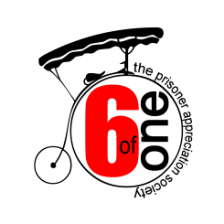BOOK THEME - FREEDOM
"Man is born free yet everywhere he is in chains."
The rightly famous opening sentence of Rousseau's ‘The Social Contract’ actually summarises his entire philosophical system, and although written in 1762, it is depressingly as true today as it was then. This mighty work defines ‘natural man’ as being free and happy and living in the ‘forest’. (In harmony with Nature.) In this ‘first’ or ‘natural’ state, man provided for all of his needs through his own efforts. He was, therefore, then independent or free of other men.
With that ringing opening phrase, Rousseau asserts that modern states both repress the physical freedom that is our birthright, whilst doing nothing to secure the promised civil freedoms that enticed us away from our state of autonomy. He explains how man succumbed to the ‘modern’ condition, one that is dominated by inequality, dependency, violence and unhappiness. He grants that there were a number of positive aspects to this process too, including the discovery of technology, the building of cities, and social organisations. However, this also establishes what Rousseau called the "right of the strongest", where a reign of inequality destroys ‘natural’ man's original state of happiness and freedom. Consequently, humanity becomes alienated, and this inequality ends unhappily in general war! Therefore, figuratively, the ‘chains’ that bind all men represent civil society itself. That was Rousseau’s considered view. Fortunately, it appears, he was an optimist as he strongly believed in the intrinsically compassionate nature of humankind, and the willingness of people to help alleviate the suffering of others. As an aside, I speculate that perhaps Charles Dickens was thinking of Rousseau’s ‘chains’, when, in Charles Dickens, ‘A Christmas Carol’, Marley explains that during his life, he created his chains by his own actions. That symbolically the things you prioritise in life will be shackled to you for eternity. The good, the ill.
Looking back from the relatively sophisticated 21st Century we may find fault with elements of Rousseau’s perhaps naïve conclusions, however, in general terms there are kernels of truth. As we have sacrificed our close connection with nature, the evidence demonstrates we become less happy and more prone to mental ill-being. In addition, we have less control over our lives as we exchange our freedoms to the demands of participating in an uncaring bureaucratic technological Society, of which each of us is a mere unit. This short section is intended to be purely an introduction to the eternal questions posed by ‘The Prisoner’ which will be explored as the reader progresses.
